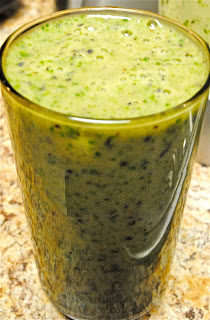 |
| I barely had time to snap a picture - this stuff went fast. |
Of late, I've had a lot of theologically based posts so I figured it was time to get some sugar up in here. So here you, ladies & gentlemen: the mother of all banana breads.
If you're looking for a healthy banana bread, you should probably look elsewhere. But if you're looking for a delicious, moist, dessert-like banana bread, look no further.
Here's what you'll need:
For the bread:
- 1 stick Unsalted Butter
- 1-½ cup Flour
- 1 pinch Salt
- 1 teaspoon Baking Soda
- ½ teaspoons Cinnamon
- 1 whole Egg
- 1 cup Sugar
- 2 whole Bananas, Mashed
- 2 Tablespoons Milk
- 1 teaspoon Vanilla Extract
- ¼ cups Flour
- 2 Tablespoons Sugar
- 2 Tablespoons Brown Sugar
- ¼ teaspoons Cinnamon
- 2 Tablespoons Unsalted Butter, Cold
Directions: (Makes 1 large loaf)
- Preheat the oven to 350. Grease a loaf pan, and set aside.
- In a small saucepan, over medium-high heat, cook the butter, stirring occasionally, until it darkens. (Do not burn it, cook it until it smells nutty.) Once the butter has browned, remove from the heat, and cool slightly. Meanwhile...
- In a medium bowl, whisk together the flour, salt, baking soda, and cinnamon, and set aside.
- In the bowl of your mixer, combine the egg and sugar, and mix at medium speed until light and fluffy.
- Mix in the cooled brown butter slowly.
- Add the mashed bananas, the milk and the vanilla extract, and mix on medium speed until combined.
- Mix in the flour mixture until combined.
- Combine the ingredients for the crumb topping in a medium bowl (use your hands or a pastry cuter to mix the 2 Tablespoons of cold) butter into the dry topping ingredients until crumbly, pea-sized crumbs form). Set aside.
- Pour the batter into the prepared loaf pan. Sprinkle the crumb topping evenly over the top of the batter.
- Bake for about 1 hour, or until a toothpick inserted in the center comes out clean. Let cool before enjoying!
You know how much I love batter, and this batter was particularly phenomenal. I seriously could've drank it with a straw. The only tricky part about this recipe was browning the butter, which was something I'd never done. I think I might've burned it slightly, but it was still amazing. I also added 3 bananas instead of 2 to enhance the flavor, which is something I always do when baking banana bread.






